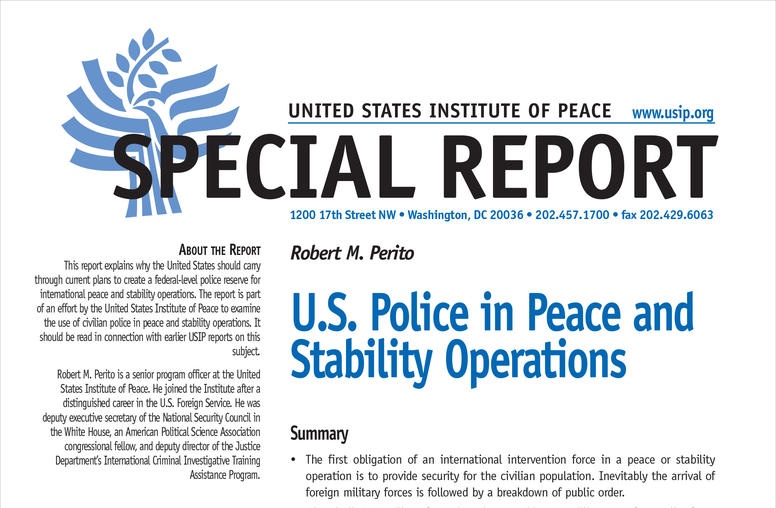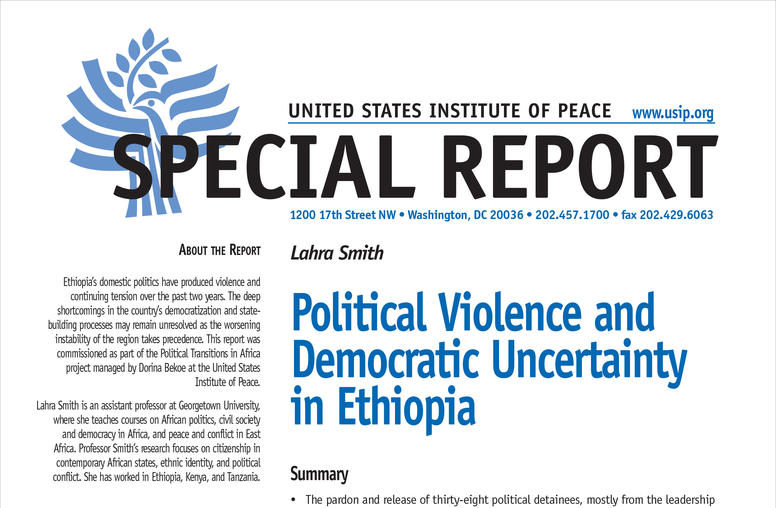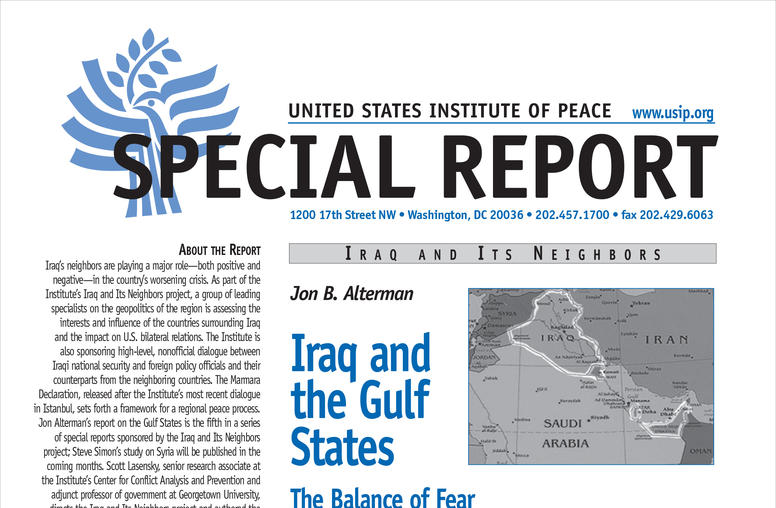Publications
Articles, publications, books, tools and multimedia features from the U.S. Institute of Peace provide the latest news, analysis, research findings, practitioner guides and reports, all related to the conflict zones and issues that are at the center of the Institute’s work to prevent and reduce violent conflict.
Hearts and Minds: Afghan Opinion on the Taliban, the Government and the International Forces
Since the election of new leaders and the establishment of a new constitution, the government of Afghanistan has been trying to prove its legitimacy and ability to foster stability, security, and the rule of law. Understanding current trends in public opinion can aid in tailoring the international intervention to ensure that prior progress is not lost and that elements corroding the strength of the state are diminished.
Violence in the Terai Region and the Madhesi Movement: Prospects for Peace in Nepal
Despite marked progress toward peace and democracy in Nepal, the Terai region, located in the southern lowlands of Nepal near the border of India, has experienced a surge in violence in last six months. What are the prospects for peace in Nepal?

U.S. Police in Peace and Stability Operations
The first obligation of an international intervention force in a peace or stability operation is to provide security for the civilian population. Inevitably the arrival of foreign military forces is followed by a breakdown of public order. The United States should carry through plans to create a federal-level police reserve for international police and stability operations.

Political Violence and Democratic Uncertainty in Ethiopia
Ethiopia’s domestic politics have produced violence and continuing tension over the past two years. The deep shortcomings in the country’s democratization and state-building processes may remain unresolved as the worsening instability of the region takes precedence.

Iraq and the Gulf States: The Balance of Fear
Iraq’s Persian Gulf neighbors supported the U.S. invasion of Iraq in order to preserve the status quo--a weak and self-absorbed Iraq--rather than to impose a new one. However, the overthrow of Saddam Hussein and its aftermath have not brought stability to the Gulf States as much as they have shifted the most serious challenges from external threats (of a hostile Baghdad) to internal threats (the threat of conflict spillover from Iraq).

Unity in Diversity
Nowhere are the stakes of sectarian conflict as high as in the Middle East, and nowhere is the practice of interfaith dialogue (IFD) more fraught with difficulty. The questions, then, naturally arise: What sort of person tries something as audacious as interfaith dialogue in such a polarized climate? And what do they hope to gain? The answers to both questions are surprisingly diverse.
Sudan’s 2009 Elections: Critical Issues and Timelines
Sudan’s elections, scheduled to take place by July 2009, are a major milestone of the Comprehensive Peace Agreement (CPA). Domestic and international institutions are already planning for the elections, although many legal and logistical issues must be resolved before they take place.
The U.S., Iraq and the Middle East
The United States faces a set of unparalleled challenges in the Middle East at a moment when its capacity to respond is circumscribed and the regional and global situations are deteriorating. It is far more likely that things will get worse before they get better, though there are ways of trying to improve the odds.
Child Soldiers: New Evidence, New Advocacy Approaches
In over 30 conflict zones today there are estimated to be upwards of 300,000 children used to support military activities as porters, sentries, sex slaves, spies, and combatants. What are the factors that might hinder attempts to curb the use of child soldiers, to prevent their recruitment, and to successfully reintegrate ex-combatants into their communities?
Special Court of Sierra Leone Briefing: The Taylor Trial and Lessons from Capacity-Building and Outreach
Against a backdrop of halting progress by many international courts, the Special Court of Sierra Leone (SCSL) has quietly had significant success in accomplishing its mission to provide justice for the perpetrators most responsible for the horrific crimes committed against the people of Sierra Leone.